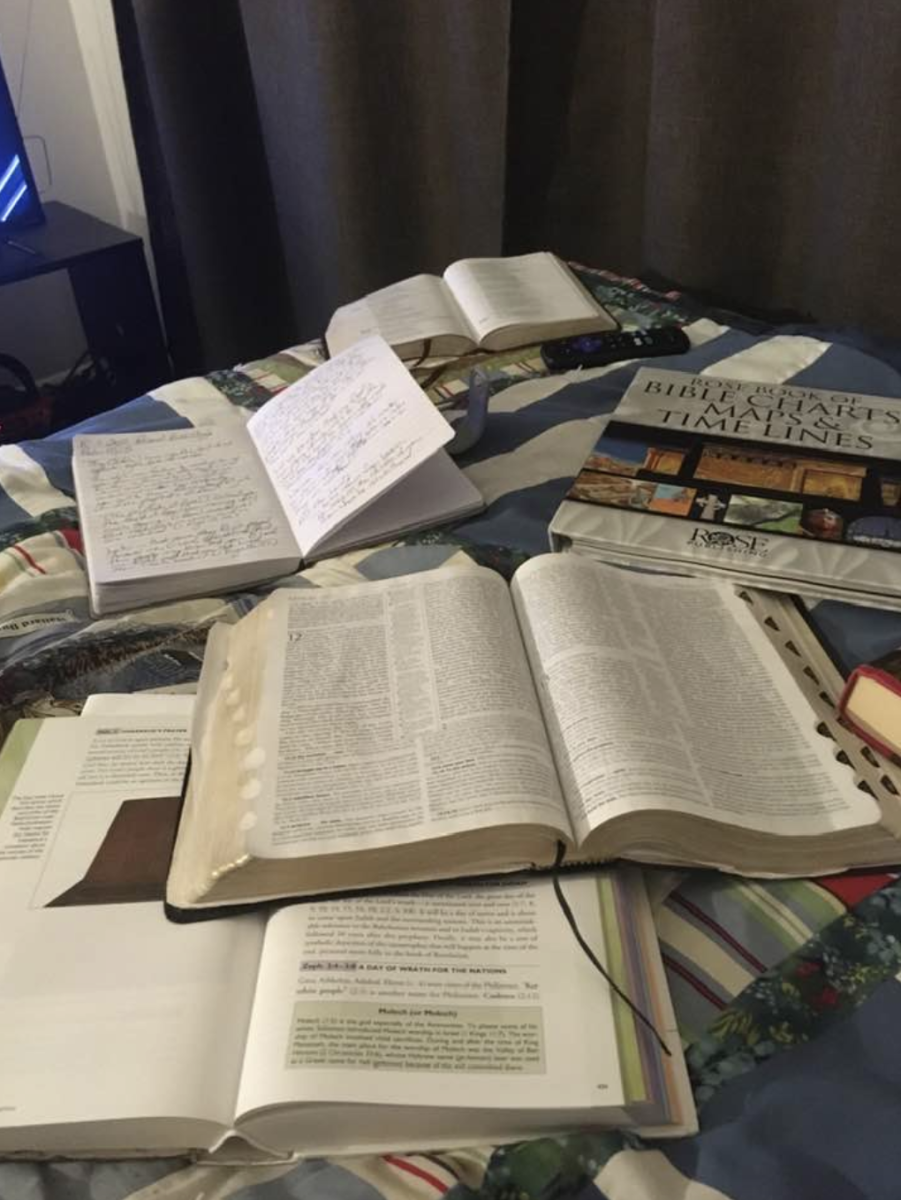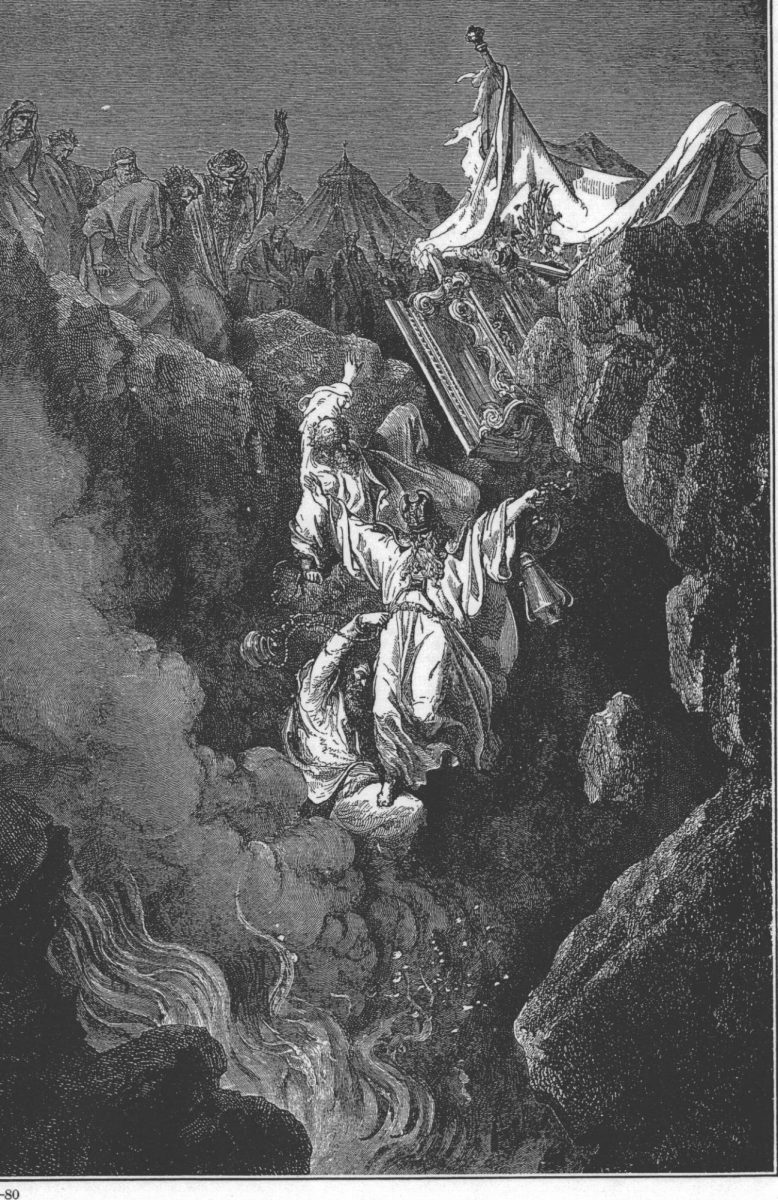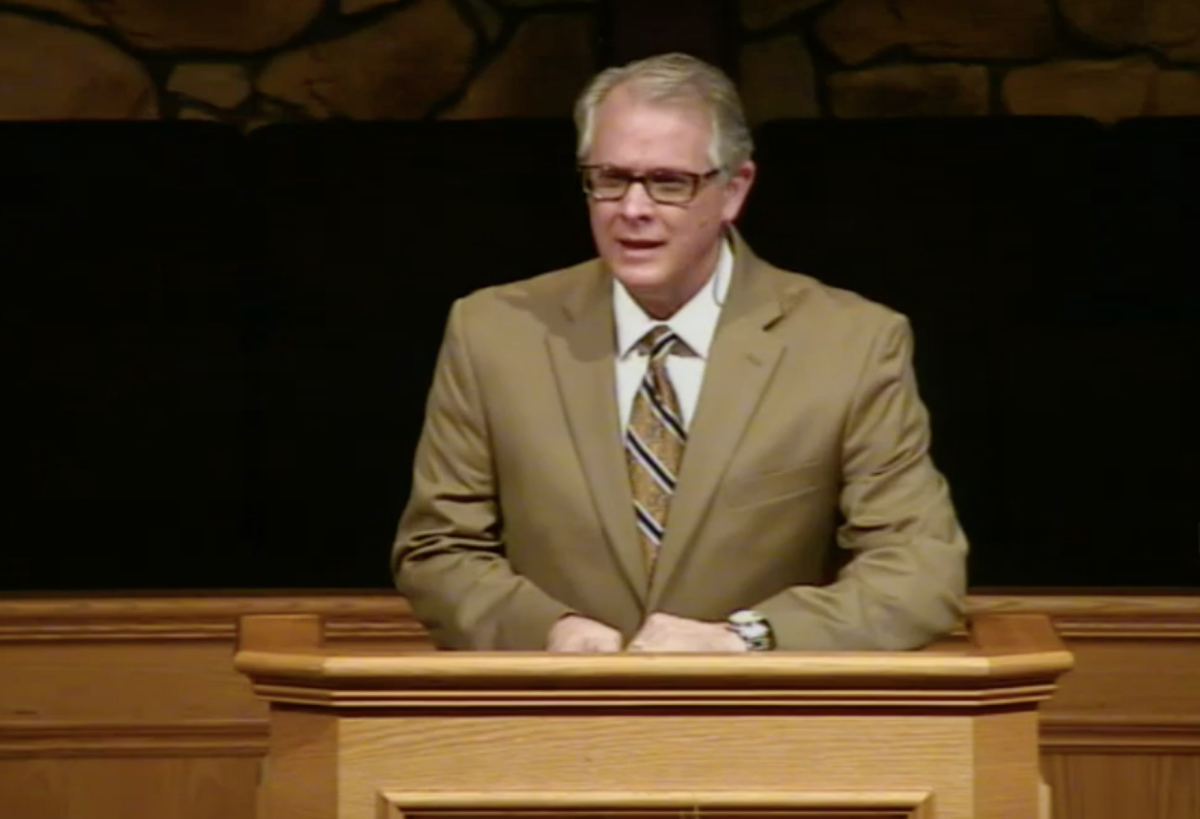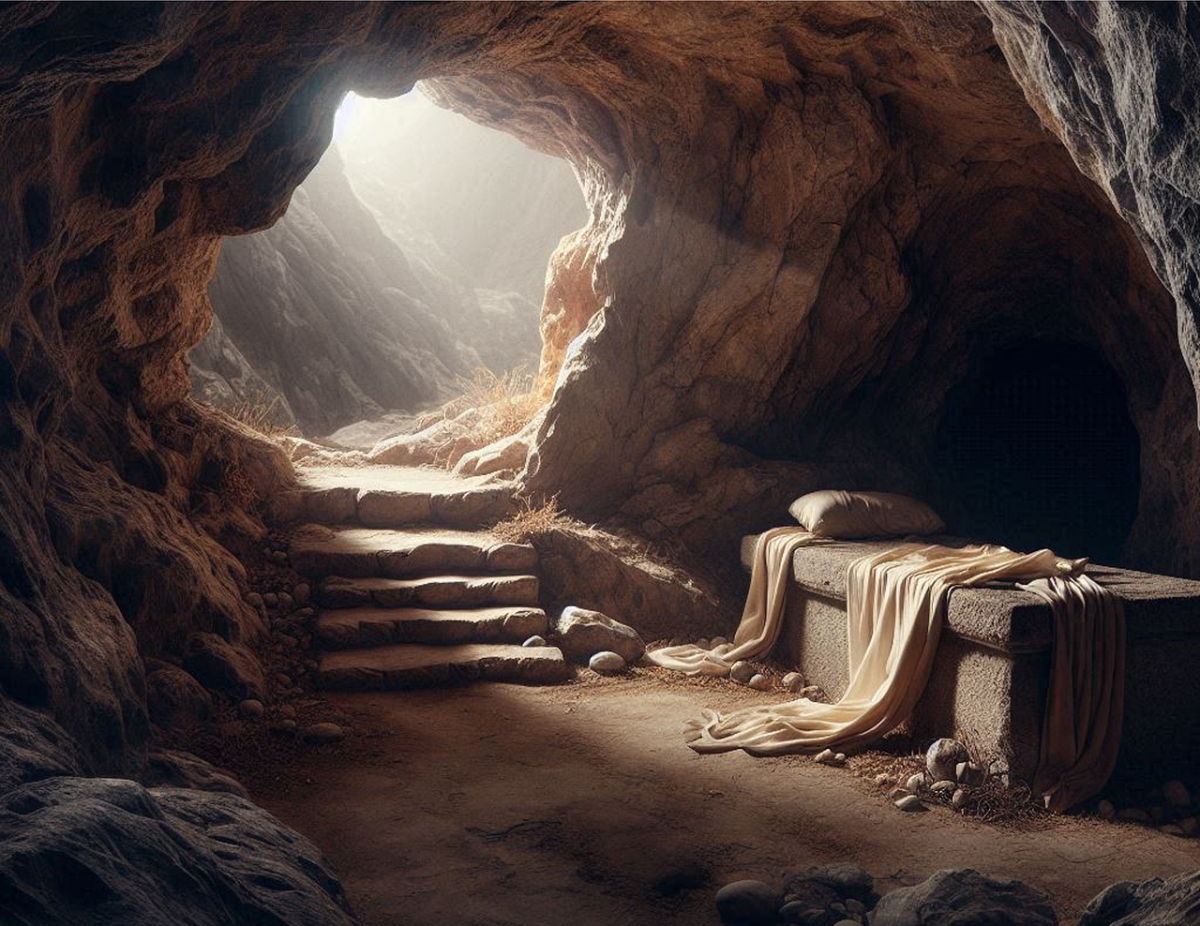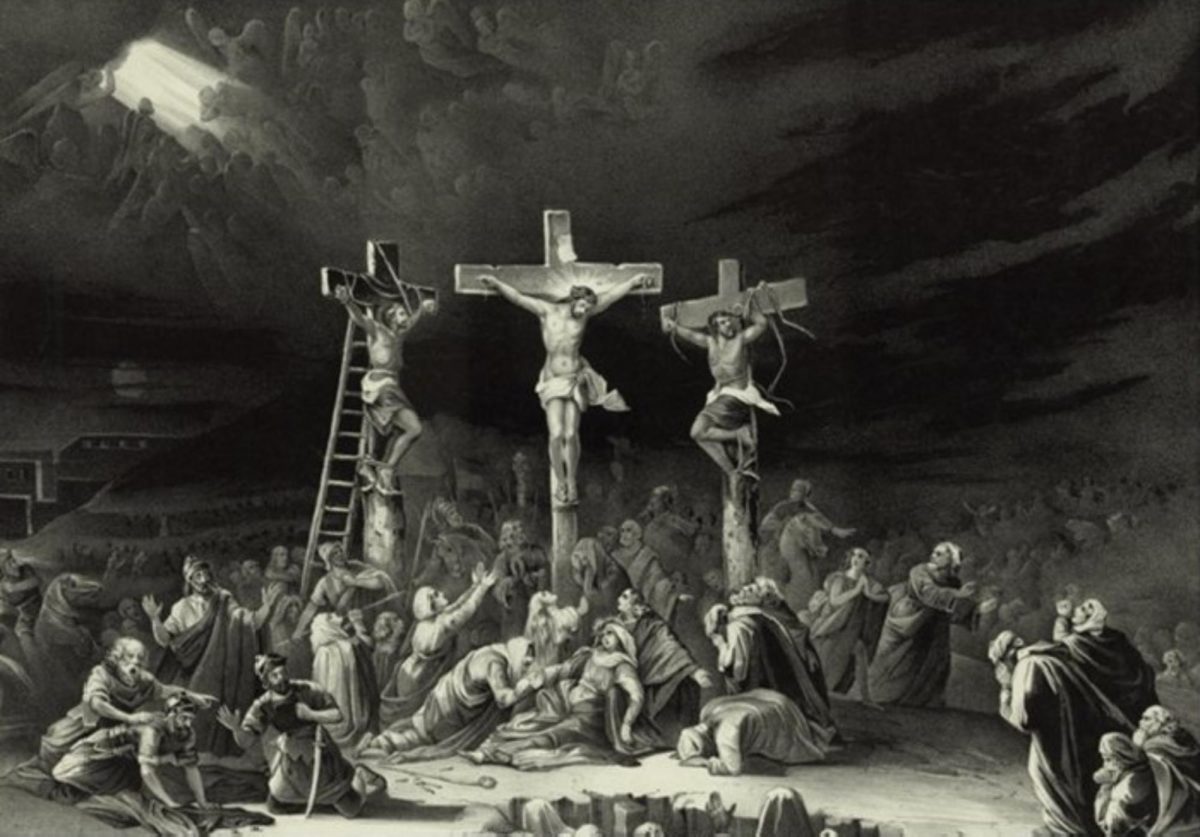“But our God is in the heavens; He does whatever He pleases.”
Psalm 115:3, NASB
A common fallacy among believers and unbelievers alike is to try to explain supernatural events using natural means. One can hardly blame us; human beings are typically eaten up with curiosity. When something extraordinary happens in front of our eyes, most of the time we do everything we can to explain it; otherwise fear becomes our default reaction. The Bible, God’s holy word, is filled with countless such extraordinary events, more commonly called miracles. For centuries scholars, pastors, skeptics, and even common Christians have tried to find natural explanations for miracles, but in the end, for the person of faith, it is not really necessary. As I hope to remind you in this article, our great God has declared, “Behold, I am the Lord, the God of all flesh; is anything too difficult for me?” (Jeremiah 32:27, NASB).
The first recorded miracle in the Bible is the creation itself. This highly debated and controversial topic has baffled the imaginations of people from the most devout converts to the most cynical atheists. To discuss the issue in depth from both sides is far more than this brief article could contain, so I will stick with the Christian point of view, which still contains many disagreements. Some insist that phrases like, “And there was evening and there was morning, one day” (Genesis 1:5, NASB) mean the days of creation were literal 24-hour days. Dr. John MacArthur adds credibility to this explaining, “Day with numerical adjectives in Hebrew always refers to a twenty-four-hour period” (MacArthur 9). This view is held by many faithful believers.
Even so, Gleason L. Archer Jr., author of the Encyclopedia of Bible Difficulties, humbly disagrees. In examining the question of how Adam could have been created, named all the animals, and undergone surgery as a prelude to the creation of Eve all on the sixth day, Archer writes:
“…it has become very apparent that Genesis 1 was never intended to teach that the sixth creative day, when Adam and Eve were both created, lasted a mere 24-four hours. In view of the long interval of time between these two, it would seem to border on the sheer irrational to insist that all of Adam’s experiences in Genesis 2:15-22 could have been crowded into the last hour or two of a literal twenty-four-hour day” (p. 60).
In other places Archer clarifies his view that the six creation days were actually longer periods of time in which God performed His miraculous work. While certainly many genuine believers would agree with Mr. Archer, perhaps they have forgotten what the Apostle Peter wrote in 2 Peter 3:8, “But do not let this one fact escape your notice, beloved, that with the Lord one day is like a thousand years, and a thousand years like one day” (NASB). This passage is speaking specifically of the Lord’s patience with mankind as He calls them to repentance, but it carries with it the implication that time is no hindrance to the work of the Lord. If He willed it, He could take a trillion years on a single flower, or bring an entire Universe to life in the blink of an eye.
Note that on the fourth day God created the sun, moon, and all the stars – which would also include all the other planets and everything else in the Universe (see Genesis 1:14-19). Our sun alone has a mass 333,000 times that of the Earth, and it is a rather small star in the grand scheme of the Universe (Levy 232). As I noted in a previous article, Psalm 147:4 states, “He counts the number of the stars; He gives names to all of them.” Surely this is a greater work than naming all the animals, a work God could have supernaturally empowered Adam to do in any amount of time. If God took a “period of time” to name all the stars as Archer might argue, we might not even be on day five of creation by this point in history!
So how could God have accomplished all the trillions upon trillions of creative acts implied in Genesis 1 in only six literal days. That’s easy. He simply wanted to!
Another miracle that still boggles the minds of believers and unbelievers alike is described in Joshua 10. While battling the Amorites, Joshua prays for the sun and moon to stop moving in order to assist the war efforts of the Israelites. God answers Joshua’s prayer as verse 13 explains, “…And the sun stopped in the middle of the sky and did not hasten to go down for about a whole day” (NASB). In ancient times when most people believed the world was flat, perhaps this might not have been considered that daunting of a miracle for the Almighty. In those days the sun and moon were thought to be only balls of light circling over the stationary flat planet. It would have been easy for God simply to stop the sun and moon with no great change to the planet. However, the shape of the planet as a globe has been long proven with incontrovertible evidence too great to go into now. For the sake of this article, we will simply trust a brother in Christ in a position to know the shape of the planet firsthand. Christian astronaut Colonel Jeffery N. Williams is the author and principal photographer of the space photography book The Work of His Hands. In it hewrites, “When one views the Earth from orbit through the window of a spacecraft for the first time – and, perhaps, most every time – it is normal to be struck by the (obvious) reality that the Earth is a ball in the vastness of space” (p. 47). Thus, the natural explanation of this miracle by those ancient cosmologists would seem to be improbable.
However, even globe cosmologists have their problems when it comes to this miracle. Among other possible explanations, MacArthur writes of this passage, “Possibly, the earth actually stopped revolving or, more likely, the sun moved in the same way to keep perfect pace with the battlefield. The moon also temporarily ceased its orbiting” (p. 263). Yet if natural forces like the earth rotating suddenly ceased, the consequences could be devastating for the whole planet. Loss of the moon alone would impact the tides (Levy 239), and the unexpected and prolonged night elsewhere on the planet would likely throw societies and their ancient economies into chaos. The earth’s gravity is caused by its mass, not its rotation (Levy 267), so that would likely remain unaffected, but there is no telling how vast the consequences would have been for the rest of the planet as the earth’s natural rotation suddenly altered.
Now, of course, the Lord could have easily overcome any of these natural problems, but He need not have broken any of the laws of nature to accomplish His will. (Though it should be noted that nature’s chief purpose is to obey and glorify God, so no matter what He commanded it to do, it would not be breaking the laws nature. We would simply be observing the obedience of nature in a way we are not used to). Like any other, this miracle happened simply because God wanted it to.
Additionally, even the human imagination can at least slightly comprehend how this miracle could happen thanks to the fictional realities of the entertainment world. Comic book superheroes like Superman and The Flash can move so quickly that time seems to freeze for them. Science fiction has also introduced the concept of time dilation – or slowing down the normal flow of time. If our feeble imaginations could come up with such things, do you not think God could come up with something even more brilliant to assist Joshua’s armies? Though it is an unrelated passage, I have always been fascinated by Ezekiel 1:14 which reads, “And the living beings ran to and fro like bolts of lightning.” To creatures like this, time would appear to be frozen as they moved with lightning speed. Perhaps something similar happened with Joshua’s armies, and the sun did not move because for the rest of the world time was frozen. Regardless of how the miracle happened, it did happen because God desired it and the explanation of how is very likely beyond our comprehension.
I have never actually heard anyone try to explain away this next miracle, but it is a fairly remarkable one when you think about it. In Matthew 14 we read the story of Jesus feeding the five thousand. In v. 16 Jesus tells His disciples, “[The crowd does] not need to go away; you give them something to eat.” To which the disciples reply in verse 17, “We have here only five loaves and two fish.” Yet by the end of verse 21 we learn, “There were about five thousand men who ate, besides women and children.”
All Christians generally accept this miracle without too much fuss, but just think of the implications and questions that could arise. With well over 5,000 people to feed, even if everyone ate only one pound of fish and bread, that amounts to several tons of food produced by Jesus from the meager meal at His disposal. And what about the fish? All fish start as living creatures in a sea, lake, or river. They are then caught, killed, cleaned, and in most cultures cooked before they are served. Did Jesus magically teleport fish from the nearby Sea of Galilee and then skip all the other steps in their preparation before feeding the crowd?
Then what about the loaves of bread? John 6:9 tells us they were made of barley. Barley is a hardy grain that produces a coarse bread. It was a staple of the poor in Bible times (Everyday Living 164). Did Jesus steal the barley from some poor farmer to create His miracle bread? The answer to both questions is a resounding “No!” Jesus created both the prepared bread and cooked fish instantaneously from nothing but His will. No natural explanation can be applied, and to my knowledge (which admittedly is limited) no one has tried.
I would need many books worth of space to analyze all the possible miracles that people have tried to explain by natural means, but I will wrap things up with just one more. Though this miracle has not actually happened yet. We read in Revelation 1:7, “Behold, He is coming with the clouds, and every eye will see Him, even those who pierced Him; and all the tribes of the earth will mourn over Him. So it is to be. Amen” (NASB). This miracle seems to present significant problems. After all, how could every eye see Christ when the earth is round? However, we must again remember never to limit our supernatural God by natural things.
In John 1:48 Nathanael asks Jesus, “How do You know me?” [Then] Jesus answered and said to him, “Before Philip called you, when you were under the fig tree, I saw you.” This statement was enough for Nathanael to hail Jesus as the Son of God (John 1:49). Jesus was not physically present at the fig tree, and it is heavily implied that He wasn’t even close enough to see Nathanael sitting under it. He saw Nathanael through supernatural means. Now, we know for a fact that God imputes aspects of His character and nature to men through Christ, including eternal life (John 3:16) and righteousness (Romans 3:22). Is it too difficult to believe that He could impute such a small thing as the ability to see Him at His coming no matter where on the planet we may happen to be? Some might even be underground or inside when He comes, yet we are told “…every eye will see Him…” Location does not seem to be a factor in the Lord’s exercising of this miracle. These days we can see anything almost instantaneously from anywhere on the planet through satellite, the Internet, and television, but in the Lord’s Day I do not think even those tools will be necessary.
So why write this article? Perhaps it is because of the greatest miracle of all – the Gospel. We are all born dead in sin destined for Hell, but through the death and resurrection of Christ we are offered forgiveness for sins, repentance, and eternal life. This is no small thing. Seeking to explain supernatural events by natural means in effect makes our God out to be smaller than He is. I dare to boldly assert that if He is anything less than omnipotent, He cannot be the saving God the Bible makes Him out to be. We were never meant to fully comprehend Him. Even the Bible says in Job 26:14, “Behold, these are the fringes of His ways; and how faint a word we hear of Him! But His mighty thunder, who can understand?” We should accept by faith all that God has allowed us to know about Him while keeping in mind that He is still vast beyond comprehension. Even God Himself said, “For My thoughts are not your thoughts, nor are your ways My ways…For as the heavens are higher than the earth, so are My ways higher than your ways and My thoughts than your thoughts” (Isaiah 55:8-9).
So how do miracles happen? They happen because He wants them to! Our God truly does whatever He pleases.
References
Archer, Gleason. Encyclopedia of Bible Difficulties. Grand Rapids: Zondervan, 1982.
Everyday Living: Bible Life and Times. New York: MJF Books, 2005.
Levy, David. The Nature Company Guides: Skywatching. San Francisco: Time-Life Books, 1995.
MacArthur, John. The MacArthur Study Bible (NASB). Nashville: Thomas Nelson, 2006.
MacArthur, John. The MacArthur Bible Commentary. Nashville: Thomas Nelson, 2005.
Williams, Jeffery. The Work of His Hands: A View of God’s Creation from Space. Saint Louis: Concordia Publishing House, 2010.
Photo Credit
The title photograph is the creation of the author.
This Post is Sponsored by:

Click the ad for more details.
The Believer’s Byline is a publication of Thrive Christian Press.
Copyright © 2015 David Scott Fields II. All Rights Reserved.



